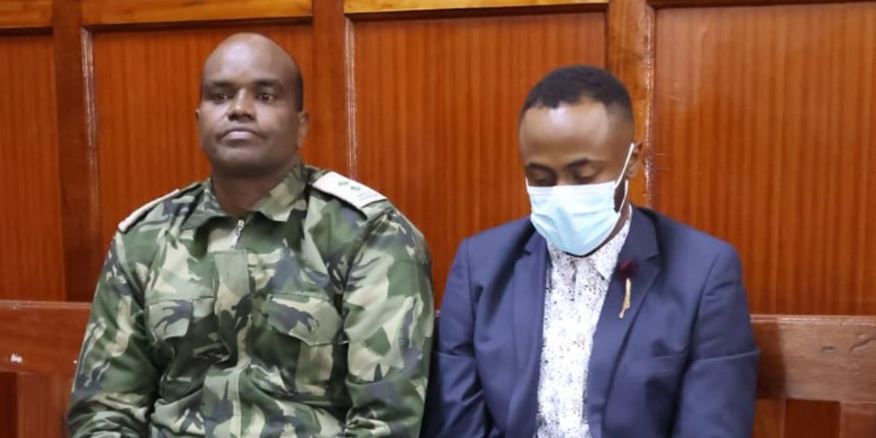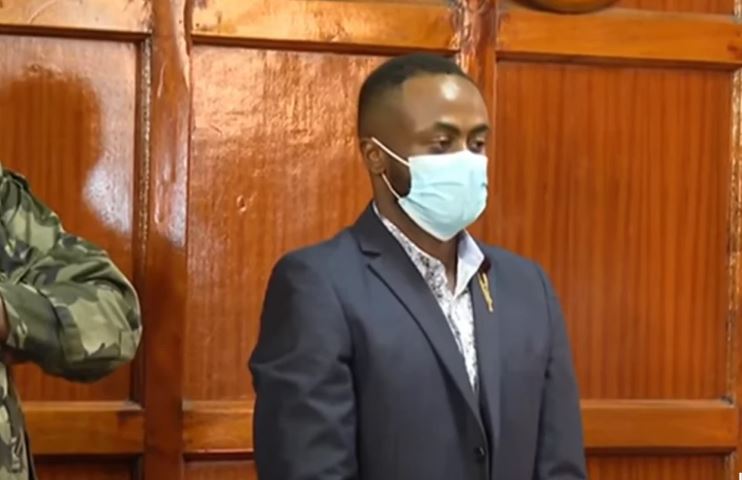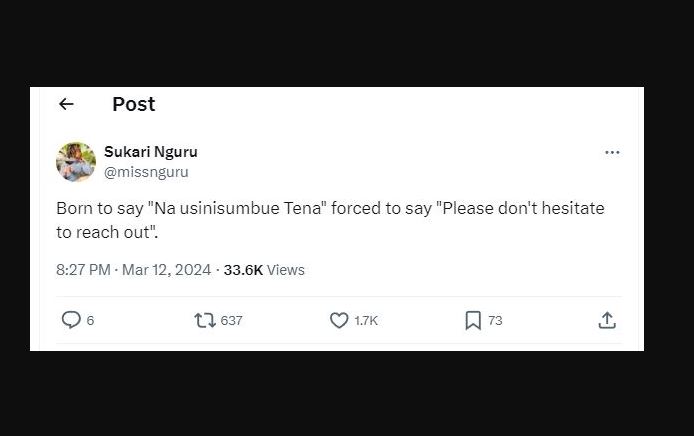
Justice Grace Nzioka of Milimani High Court read his submission as she delivered a death sentence on Wednesday, March 13.
In his submission, Jowie expressed his shock at the ‘madness’ of the crime, in which Monica Kimani had her throat slit from ear to ear. The 33-year-old acknowledged that nothing he says would alleviate the pain of Ms. Kimani’s family.
While reading Jowie’s statement, Justice Nzioka highlighted that specific submissions from the accused drew her attention.
“He says he expresses his sadness that such a tragic loss of life on extreme circumstances bordering on absolute madness beyond understanding even for him as he stands there convicted,” the judge read in part.
Jowie also stated that he agreed with Monica Kimani’s family that no amount of monetary compensation to the family would revive her, nor offer solace to her family.
“It is my prayer that the deceased’s family will find peace and Monica Kimani will rest in eternal peace…I am aware that nothing at this stage will relieve the pain of the deceased’s family so the less I say the better,” read his submission.
Maintaining his innocence, the accused expressed disappointment with the court for linking him to the murder of Monica Kimani.
Jowie made the aforementioned submissions in his application for a custodial sentence instead of the death penalty.
“He says it is his prayer that the court can mete out a custodial sentence that is not necessarily death,” Justice Nzioka read.
Jowie Irungu further asserted that despite Ms. Kimani’s family advocating for a death sentence, her father, Bishop Paul Ngarama, publicly stated he would not seek vengeance. He urged the court to take into account the deceased’s father’s perspective and also consider that he(Irungu) is a first offender, “convicted purely on circumstantial evidence.”
Jowie additionally pleaded with the court to consider the duration he has spent in custody since the September 19, 2018 murder.
In her ruling, Lady Justice Grace Nzioka observed that Kimani’s murder was not a defensive act or a result of provocation but was a planned, intended, and executed crime.
“Based on what I have said, I have ordered that the first accused before this court, Joseph Kuria Irungu alias Jowie, shall suffer death as provided for the offence of murder under section 204 of the penal code of Kenya. That is the order of the court.”
Death Sentence in Kenya
The death sentence, however, does not mean that Jowie will face the hangman’s noose. Thousands of convicts have been sentenced to death for various capital offenses but no one has been executed since 1987 when military officers, Senior Private Hezekiah Ochuka and Sergeant Pancras Oteyo Okumu, were hanged for treason for their role in the 1982 failed coup against the late President Daniel Arap Moi.
While the Supreme Court declared the mandatory death penalty unconstitutional in 2017, death sentences are still passed in Kenya and are usually commuted to life imprisonment.
In July 2023, the Court of Appeal declared the life imprisonment sentence unconstitutional. President Ruto subsequently reduced the death sentence imposed on capital offenders, effective from November 21, 2022, to a life sentence.
A gazette notice dated July 19, 2023, announced the softened conviction rule, following a recommendation from the Advisory Committee on the Power of Mercy chaired by Attorney General Justin Muturi.
The Power of Mercy Act 2011, enshrined in Article 133 of the Constitution of Kenya, empowers the President to exercise the power of mercy based on the advice of the Advisory Committee. This includes granting a free or conditional pardon, postponing the carrying out of a punishment, substituting a less severe form of punishment, or remitting all or part of a punishment.
Most recently, Chief Justice Martha Koome has since presented two bills too parliament that call for abolishing the death penalty for the crimes of murder, violent theft and treason. She says the proposed changes aim to align the country’s laws with international human rights standards.
Koome is also seeking changes to certain laws drafted in 1930 before Kenya gained independence, that seek harsher penalties for capital offenders.
The judiciary also advocates changing the life sentence penalty to a maximum of 30 years and replacing the word “manslaughter” with the words “second-degree murder.”









